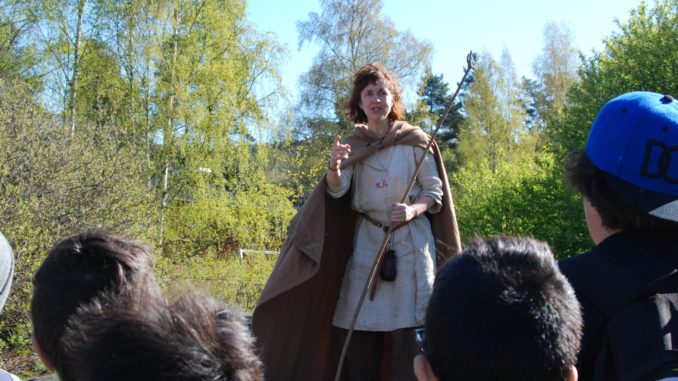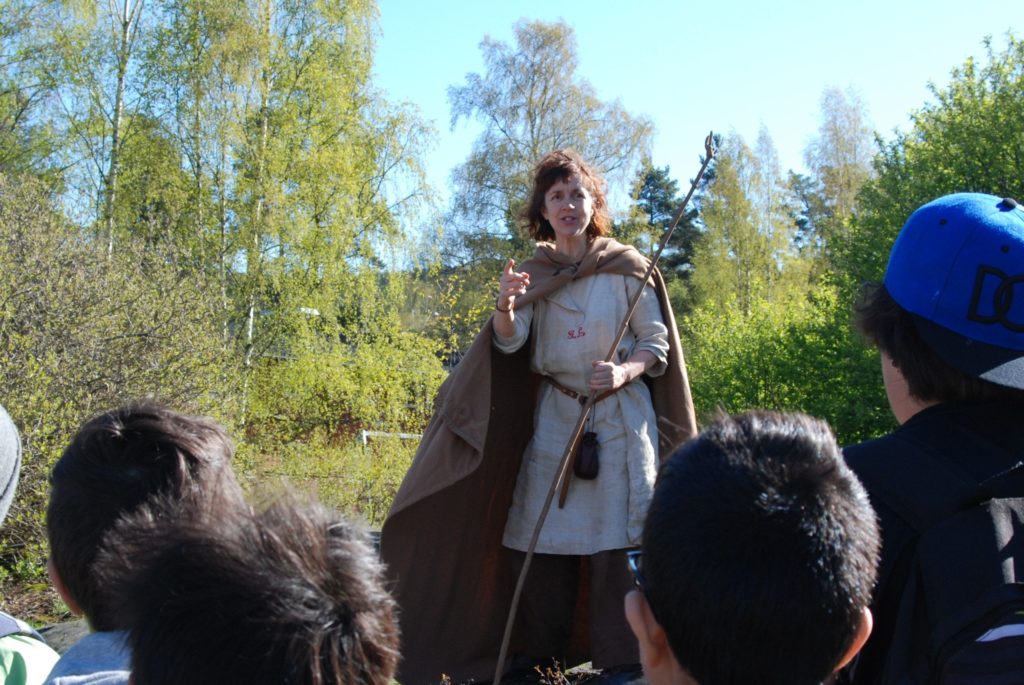

Wildlife Tales for Telling by Georgiana Keable
Back in the nineteen eighties we used to perform together as part of a group called ‘The Company of Storytellers’. We have performed to teachers, parents, librarians and grown-ups of all kinds and this is a book about passing on traditional stories to children.
Just like our ancestors we still depend for our survival on the generosity of the land. We may no longer be surrounded by farms and fields and forests, but our lives are interwoven with the lives of insects, plants, animals and birds. Their well-being is our well-being. The elemental energies of fire, water, air and earth are as crucial to us as they have ever been. We live out our lives under sun, moon and stars. And emotionally we are no different – greed, kindness, anger, courage, jealousy, love, laziness, laughter and sorrow inhabit us, just as they inhabited our great, great, great, great grandfathers and grandmothers.
The stories that our ancestors told remind us that we are all part of an organic whole. Everything is reciprocal. Animals, fishes, birds and plants are endlessly generous in their gift of themselves… but there are conditions, and the central one is that we, as fellow creatures, must never forget that we are members of the same sprawling family.
If we’re looking for stories for now, these must be the ones!
In ‘The Natural Storyteller’ Georgiana retells traditional stories from many cultures. All of them explore themes of inter-dependence and sustainability (and there are some beauties ‘The Birch Tree’ and ‘King Brahmadatta and the King of the Deer’ are two of my favourites). But what makes her book unique is that her years of working as a storyteller gives it a sense of adventure and fun. She knows how to talk with children. She is chatty and engaging. The book is a journey into storytelling as well as story. There are lots of tips about how to remember the structure of a story. She understands that once a story is learnt it actually works its way into the nervous system. It becomes part of you.
At the end of each chapter there’s a ‘Myths from the Land of You’ section, in which readers are invited to find connections between the stories and their own lives. This is a lovely introduction to the idea of myth as a sort of template for human experience.
There are activities and things to do, bringing the stories into practical and playful modes (there’s a Songline game and instructions for planting a ‘Tun Tree’, tracking animals and building a bird box). And there are plenty of riddles. Georgiana also includes some true-life stories and scientific accounts that connect the story themes with the empirical world. And it ends with a challenge – have a story party and tell some of these tales yourself.
The book is life affirming. All of its stories are about taking delight in creation. But there is also a radical undercurrent. Let’s not forget what stories do. They are at the root of thought. Narrative psychologists claim that by the age of three we all carry – hard-wired – an internalized narrative grammar. All human modes of conduct (the arts and sciences, memory, planning, religious belief, legislation, craft skills) are deeply storied. Stories are the tools we use to make sense of the world.
They are also viral. They spread. By getting these old stories back into circulation, by encouraging the telling and listening and dispersion of them, and especially by making them available to children, our deep cultural ‘story-map’ can be subtly shifted. They can teach us to re-assess our place in creation. Maybe they can lead towards an understanding that sees no contradiction between ancestral knowledge and the concerns of now.
It is for this reason most of all that I welcome this book, and wish it a happy voyage into the minds and hearts of a new generation of Natural Storytellers.
Hugh Lupton